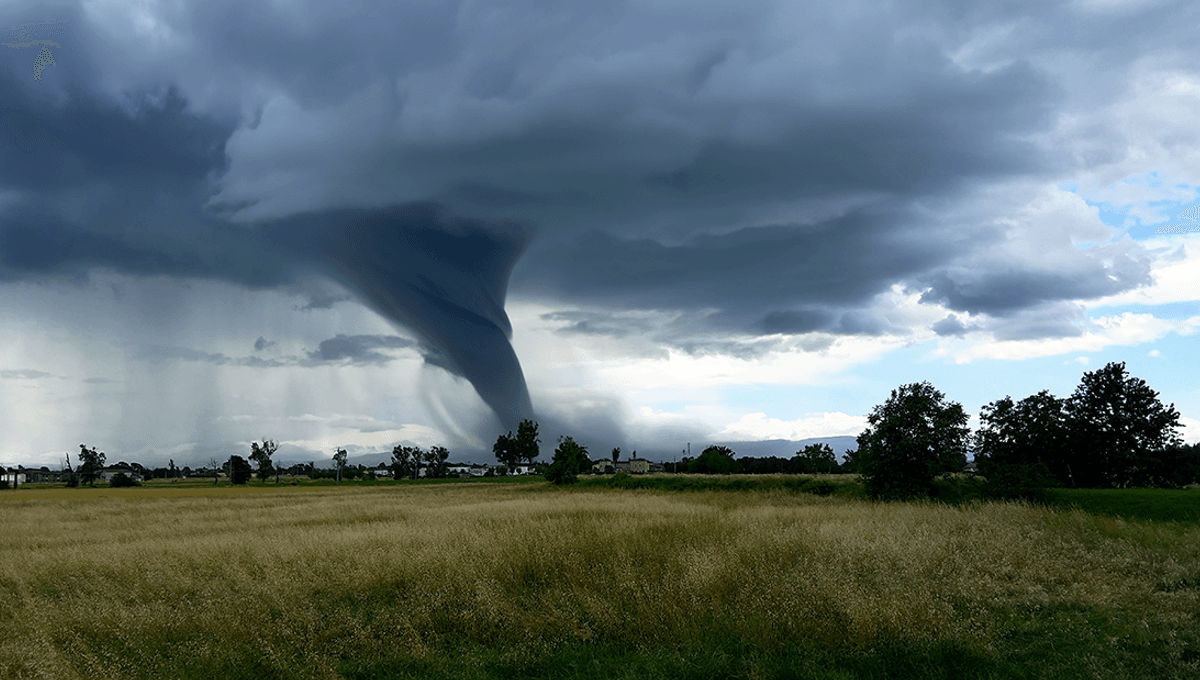
ADVERTISEMENT
Despite a relatively short history as a nation, going back just a couple of centuries, there is a precedent for such an ostrich policy. For over 60 years, the US banned the use of the word “tornado” in weather forecasts, forbidding potentially life-saving predictions of their formation.
In 1877, Michigan-born John Park Finley enlisted in the U.S. Army Signal Service, where he began training as an assistant to the officer in charge of a weather station. He took to the role, and focused his attention on tornadoes, devoting his own free time to their study.
Finley compiled weather reports, and attempted to look for patterns in weather directly preceding tornadoes.
“Finley continued to work in the Fact Room and in addition collected all known tornado reports from old records that covered the period 1794 through 1881. This was the project that he had begun in Philadelphia and that would appear as a report in early 1882 entitled ‘The Character of 600 Tornadoes’,” meteorologist Joseph G. Galway explains in an article for the Bulletin of the American Meteorological Society on Finley’s life.
“The first version contained many errors, some typоgraphical. The paper was suppressed, corrected, and finally published as a Signal Service Professional Paper. It consisted of the most comprehensive climatology on tornadoes set forth up to that time. More important, his deductions in that paper became the foundation for a list of forecast rules that were developed over the next year or two.”
Finley correctly identified a number of weather conditions that precede tornadoes, as well as suggesting how they could be monitored and relayed through the telegraph system. In 1884, he had nearly a thousand “spotters” making up a network of tornado-hunters in key tornado areas. While his predictions weren’t always on the money, plenty of them did pan out, potentially giving people time to prepare.
ADVERTISEMENT
While most would think knowing when tornadoes are going to hit is a “good thing”, US government officials disagreed, stating that it “is believed that the harm done by such a prediction would eventually be greater than that which results from the tornado itself”.
Finley was awarded prizes and awards for his work on tornadoes, but in 1887, the Signal Corps banned the use of the word “tornado” in weather reports. When the US Weather Bureau took charge of forecasting a few years later, they continued to make no attempt to warn people that a violently rotating column of air was heading toward their homes.
“There is no material advantage to be derived from any, even the most perfect, system of forewarnings and attempts at protection,” one meteorologist said in defense of the ban on tornado reporting.
The ban continued for an astonishing 60 years. Why the change? During World War II, the US developed a warning system in order to protect military sites and airbases, and civilians near the military installations started to push for a civilian warning system.
ADVERTISEMENT
Since then, research has been slow but steady, and tornadoes are rarely as devastating to life as they once were. Perhaps US government officials today could take note of that when looking at climate research.
Source Link: The US Government Once Banned Using The Word "Tornado" In Weather Forecasts